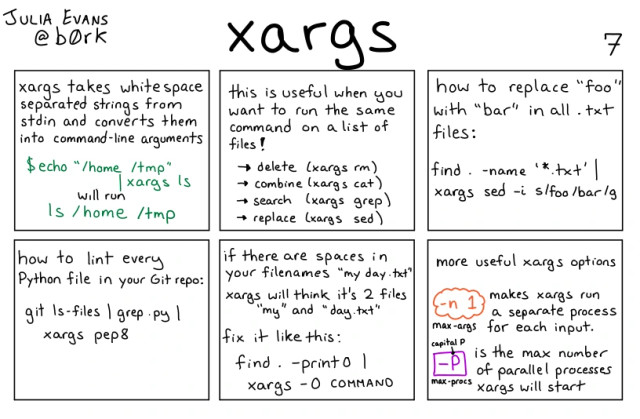|
19 posts total
debugging tips: check your assumptions Permalink: https://wizardzines.com/comics/check-assumptions/ how to handle intermittent bugs Permalink: https://wizardzines.com/comics/intermittent-bugs/
Show previous comments
Wait! It gets better! On MacOS, you also have access control lists AND extended attributes! (GAG!) @b0rk_reruns I’ve been on Unix/linux systems since my early 20s AND I still need to look up the permissions commands. Thank you for this. @b0rk_reruns there's no need for 644, just use chmod u=rw,go=r foobar.txt ... You can even do relative changes like chmod u+r foobar.txt ... No need to mess your brain up with manually thinking of bits.
Each section has an intro page. Different systems may have different numbers for sections. "man 2 intro" "man 4 intro", etc @b0rk_reruns ... leading to the age-old question "why is this the only system on which the help command isn't spelled h-e-l-p?" @b0rk_reruns Someone really needs to explain Cache-Control max-age and If-Modified-Since to whoever looks after pulling in podcast feeds at #Apple and #Amazon and #Spotify!
Show previous comments
@b0rk_reruns @indigoparadox There are some added rules about conditional dispatch for set -e, but they themselves perserve the general hackiness of bash.
@b0rk_reruns @b0rk_reruns if you're scripting rather than tapping raw bash into the terminal, this should give the same behaviour "#!/bin/bash -e -u -o" it's not too late to start learning Permalink: https://wizardzines.com/comics/start-learning-today/
Show previous comments
@b0rk_reruns I also use `Ctrl+U` a lot to clear the current input. It works great, specially if you misstype a password field and want to start over, which happens to me quite often. oh shit! I did something terribly wrong, does git have a magic time machine? Permalink: https://wizardzines.com/comics/oh-shit-time-machine/ @b0rk_reruns@social.jvns.ca "so I put version control in your version control, so you can control the version of your version control"
Show previous comments
@b0rk_reruns having an explainer that shows "explain plan" for a sample query could be a logical follow up. One could argue that it's too complex for your audience. But you have the skill to present complex things in a way people can actually understand. @b0rk_reruns the ORM I use allows composing query concepts in any order technically, but in practice it almost always starts from a "from" base concept (like, DV[:some_table] is "SELECT * FROM some_table", but filtering with WHERE and only some cols could be DB[:some_table].filter(some_col: 'value').select(:col1, :col2)). Might be one of the unconscious reasons I like it, since it maps to this better mental model of building SQL statements This is syntax that rdbms clients could support. It’d also help with column name completion if you start with FROM. how indexes make your queries fast Permalink: https://wizardzines.com/comics/indexes/
Show previous comments
|










@b0rk_reruns -i \{\} is handy too
@b0rk_reruns Nice. xargs is tricky but useful. I think people will find this helpful.
@b0rk_reruns I always use the « -d ‘\n’ » option to avoid the space-in-filenames and related problems.